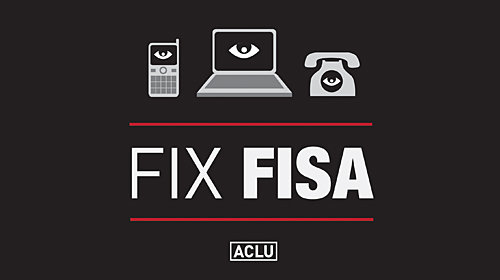
This past Friday, the Senate Intelligence Committee publicly released its report on S. 3276, a five year extension of the FISA Amendments Act (FAA). The Committee voted 13-2 to extend the FAA-the law that legalized President Bush’s warrantless wiretapping program and more --without amendment, and without conducting any public oversight. The Committee also rejected crucial amendments by Sens. Ron Wyden (D-OR) and Mark Udall (D-CO) that would have increased transparency and privacy protections for Americans.
The report perfectly distills the crux of the debate: if the government is allowed to collect all sorts of foreign and international communications and sweeps up Americans’ private communications in the process, is that a problem? And if so, what should Congress do about it? Chairman Dianne Feinstein (D-CA) argues in her additional views that it is generally not a problem and no further amendments are necessary. She points out that the surveillance is directed at non-Americans overseas and that the procedures to ensure this are approved by federal judges.
We however beg to differ that the collection of communications with a party in the US is ‘incidental.’ Congress debated the FAA and related legislation for two years, and members of Congress first drafted bills that would have allowed the government to get foreign to foreign communications without any court oversight whatsoever. It was roundly rejected and Bush administration officials admitted that they fully intended to pick up calls, emails and texts where one party was in the US. In fact, they said, those are the communications that are the most interesting. Disappointingly, an amendment offered by Sens. Wyden and Udall to ensure that American information collected by this program could not be searched for a specific US person, was rejected.
There are a couple of tidbits in the additional views worth paying extra attention to. First, in explaining her belief that the FAA is constitutional, Sen. Feinstein mentions that there are several FISA Court opinions that have “repeatedly held that collection carried out pursuant to the [FAA] minimization procedures used by the government is reasonable under the Fourth Amendment.”
Minimization procedures are the secret rules for, well, “minimizing” the collection, retention and use of sensitive information. They have been secret for over 30 years, and there is no publicly available information about how they work as a practical matter. If they are the underpinning for the legality of the whole massive, suspicionless wiretapping program, there needs to be disclosure of their contents in some form. Heck, we’ll settle for the release of those FISA Court opinions, though, with redactions if necessary.
The other point is that the Inspectors General of the Intelligence Community and the National Security Agency are looking into whether it is ‘feasible’ to estimate how many Americans have had their communications picked up by the FAA. I’d argue that those minimization procedures bearing the weight of our Fourth Amendment rights may not be working all that well if our government can’t even make an educated guess about how many of us they are spying on.
It’s unclear whether the Senate Judiciary Committee will now claim jurisdiction and make changes to the bill, or if the next step is a full vote on the Senate floor. What we do know is that Sen. Wyden has put a hold on the bill and will not release it until he gets answers about how many of us are swept up in the FAA program. You can read his excellent hold statement is here.
We’ll keep you updated as the bill moves forward. In the meantime, there’s still time to tell your member of Congress to Fix FISA.
Learn more about warrantless wiretapping: Sign up for breaking news alerts, follow us on Twitter, and like us on Facebook.



